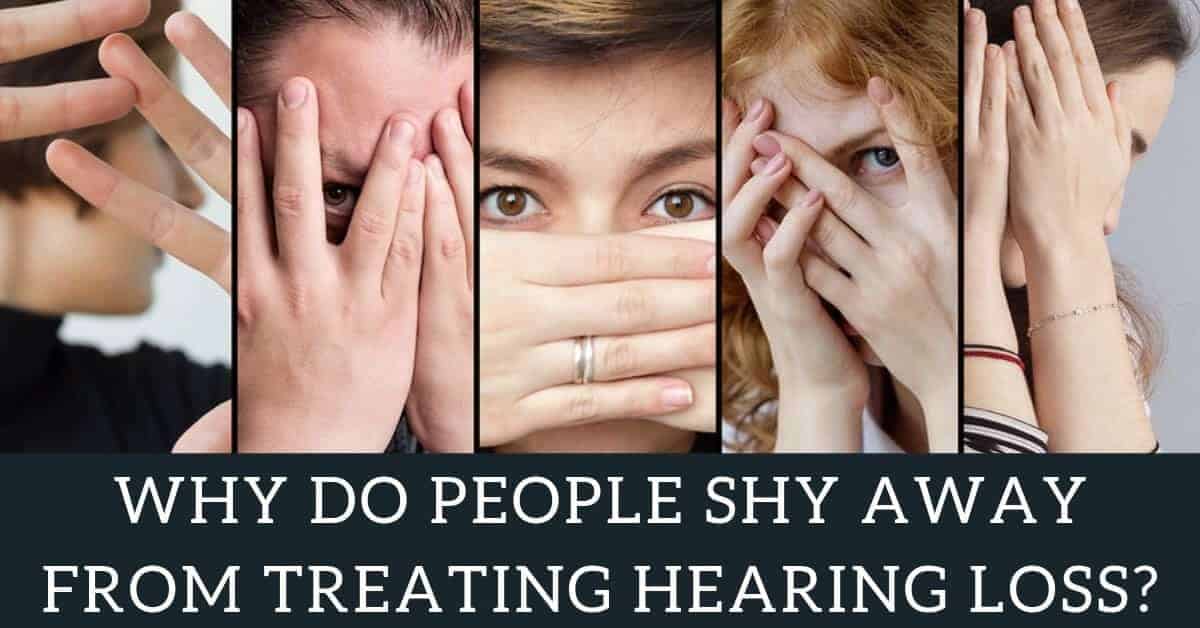There are about 26.7 million people over age of 50 with hearing loss, but only 14% are using hearing aids. Contrast this with how we deal with eyesight problems: about 75% of adults in the US use some form of vision correction for their eyesight loss.
So why is there such a disparity in our attitudes towards hearing loss compared to eyesight loss? The most common reason that people shy away from their hearing loss is that they don’t believe that they have a problem. Let’s look at the reasons why they might think this.
1. Hearing loss is gradual
Have you ever heard of the boiling frog fable? The idea is that if a frog were to be placed into a pot of boiling water, it would waste no time in jumping out. But if you were to place the frog in a pot of room-temperature water and began to heat the pot up slowly, the frog would not jump out and would eventually be boiled alive.
This story illustrates the most important reason why people don’t treat their hearing loss. Hearing loss is so gradual that it can take years for the effects to fully realize themselves, so the person with the hearing loss often doesn’t notice. In fact, other people are more likely to notice the hearing loss before the person with it. Meanwhile, the sufferer may continue to ask others around them to stop mumbling.
2. Hearing loss is invisible
Hearing loss is often called the an invisible disability because it can’t be detected visually. It is also painless. There is no blood drawn or sensory receptors which tell nerves to deliver pain to tell us damage has occurred. The experience of hearing loss is also surprisingly subjective. People differ in their experiences of hearing loss. Indeed, the only way we can tell truly if we have hearing loss is through a professional hearing test.
3. The effects of hearing loss are uneven
The most common form of hearing loss is sensorineural. During this type of hearing loss, the ear cells which detect higher frequencies are the first to be damaged. This means you are more likely to be able to hear low-frequency sounds as normal, meaning you might not notice the issue with your hearing. It is because of the uneven nature of hearing loss that many sufferers claim that they can hear others just fine, but they can’t understand them.
4. Hearing loss is not tested by most family doctors
It’s very unlikely that a person will have their hearing loss diagnosed by their primary care physician. Not many doctors are in the habit of checking for hearing loss in their patients. This is because hearing is not usually an issue during a one-on-one conversation with your physician in a quiet room. This can compel those with hearing loss to further believe that they have no issue with hearing, rationalizing that their doctor would have picked up on it if they had a problem.
5. The early effects of hearing loss are easily mitigated
Many people are able to offset their hearing problems by turning up the volume on the TV, or asking those around them to repeat themselves. Many individuals are so unaware of their hearing loss, they continually expose themselves to noises that aren’t as loud to them without utilizing hearing protection (i.e. mowing, loud music, firing a weapon.) Continuing to raise the volume to accommodate hearing loss only continues to cause more damage.
How can we help those with hearing loss seek treatment?
We need to encourage our spouses or family members who exhibit signs of hearing loss to seek treatment. It may be helpful to their process to bring up examples of times where you’ve had to repeat yourself or had to sit through a movie with the volume at an uncomfortably high level. Hopefully this will make those with hearing loss realize that their hearing loss is affecting their ability to lead a normal life.
More work also needs to be done by those in the healthcare industry to draw attention to the full range of conditions which have been associated with hearing loss, discovered by many researchers over the past 30 years. Indeed, hearing loss is now associated with a long list of mental, social and physical conditions including anxiety, insecurity, social isolation and depression. The most recent developments have even linked it with dementia.
We mentioned at the start of the article that only 14% sought hearing treatment for their hearing loss. But what if we turned the tables, and 86% of those with hearing loss decided to seek help? That would lead to an extra 28 million people in the US who would benefit from the gift of better hearing, and all the long-term social, mental and physical benefits that it offers.


